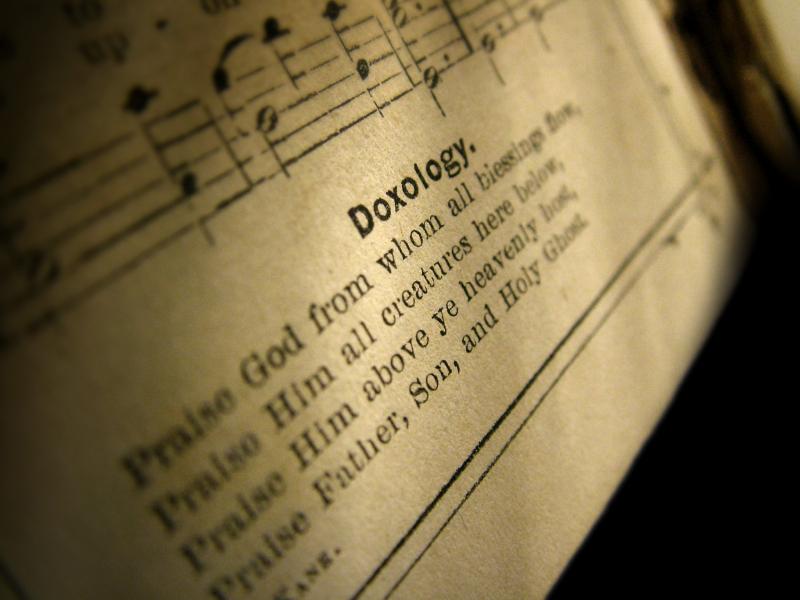A person really only has to look at the impact that secular music has made on our society to know the influence of singing. However, this fact seems to not only be true when it comes to secular music in secular society but also concerning spiritual songs and their impact on our spiritual lives and our outlook on life. In his comments on Colossians 3:16 Albert Barnes made an interesting statement:
“Dr. Johnson once said, that if he were allowed to make the ballads of a nation, he cared not who made the laws. It is true in a more important sense that he who is permitted to make the hymns of a church, need care little who preaches, or who makes the creed. He will more effectually mold the sentiments of a church than they who preach or make creeds and confessions. Hence, it is indispensable, in order to the preservation of the truth, that the sacred songs of a church should be imbued with sound evangelical sentiment.”
Singing can make such a powerful impact but only when we approach it properly. But in order to approach it properly we must first understand it. This week’s Sunday Sermon Starter is all about singing and what the Bible tells us what it is able to accomplish in our lives.
Title: Sing With Grace in Your Hearts
Text: Colossians 3:16-17
Main Point: What a magnificent opportunity we have in the multifaceted activity of singing. It is magnificent in its Object and it is multifaceted in its objective. But what information do these two verses in our text supply us regarding our worship through song?
- The Perspective of our Singing – The “What” Factor – When you read Colossians 3:16 you quickly realize that the perspective of our singing always must be the perspective of truth. When we sing in worship we sing to God. If we are singing to God with the purpose of worshipping God, then what we sing should reflect truth and truth alone (John 4:24; 1 Corinthians 14:15). Additionally, when engaged in worship to God, our singing should be reserved for those songs, which reflect Bible truth (even if it means rejecting some songs that we have long sung). The most effective Satan can be is in confusing people’s ways of thinking through songs. When songs are sung that reflect Calvinistic doctrine people are going to be influenced to be Calvinists. When songs are sung that reflect premillennial doctrine people are going to be influenced to be premillenialists. When songs are heard and sung that reflect other denominational concepts people are going to be influenced to be denominationalists. If we ever forget the true perspective of our singing we will be on a dangerous course to neglecting the “what” factor.
- The Purpose of our Singing – The “Why” Factor – Singing, as all aspects of worship, carry a two-fold purpose: (1) worship is first and foremost praise offered to God (Ephesians 5:19) and (2) worship should result in personal edification (Colossians 3:16b). Specifically, Paul mentions the ability we have in our singing to “teach” and “admonish” one another. These are two separate words used, but reflect the same necessity – to instruct and to encourage (coinciding acts). These words are used as imperatives in the original language, which is the most forceful way in the Greek language to tell someone to do something. This, though, is not just a relation of our teaching others when we sing, but the necessity of ourselves learning as well. Singing is not just time filler, something we do without meaning. And while no one necessarily thinks that, many times we act like it by not paying attention to what we sing. Good, truth-filled songs cannot only inspire us but can instruct us because of their meaningful and scriptural lyrics. However, if we forget the purpose of our singing, many are still going to be left asking “why” we do it.
- The Pattern of our Singing – The “How” Factor – When I look at the landscape of religion in our world I feel a bit like Paul as he entered Athens when his spirit was stirred because of the saturation of idolatry present. I am particularly troubled when I hear uninformed brethren discuss the “tradition” of worshipping without mechanical instruments. People ask if we truly believe that something as “minor” as singing with an instrument will send a soul to hell. The question that should rather be asked is whether disobeying God’s Divine authority will send a soul to hell. Both by explicit command and approved example the New Testament authorizes Christians to sing in worship (Colossians 3:16). But the key to the matter is found in verse 17. All that we do must be done according to the authority of Jesus. Anything done outside of that authority is sin. However, if we ignore the pattern of our worship then we will badly miss the “how” of our singing.
Whether we are able to sing well or not, how wonderful a gift it is to be able to praise God in song. But it is a “sacrifice” that must be offered by a “priest” of God (1 Peter 2:9). Worship is a blessing reserved for the children of God, recipients of His grace. It is that relationship that allows us to truly sing with grace in our hearts.

